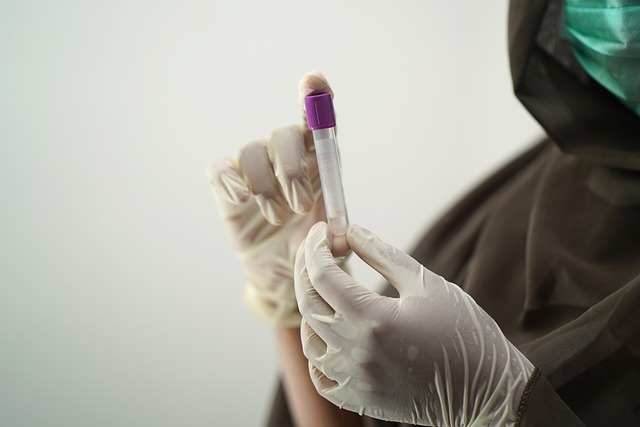The UK Standard Liver Blood Test represents a significant leap forward in personal healthcare, offering individuals an easy-to-use, at-home solution for monitoring liver health. This test measures critical indicators such as Alanine Aminotransferase (ALT), Aspartate Aminotransferase (AST), Alkaline Phosphatase (ALP), Gamma-Glutamyl Transferase (GGT), and Total Bilirubin, which are essential for assessing liver function and identifying potential liver issues like hepatitis or fatty liver disease early on. The test's availability is particularly beneficial for those with busy schedules, mobility challenges, or a preference for private healthcare settings. By enabling self-monitoring of liver enzyme levels, the UK Standard Liver Blood Test supports early detection and intervention, which are key to effective treatment and improved health outcomes. This test aligns with national health guidelines and contributes to the proactive management of liver health within the UK, making it a valuable tool for preventative healthcare. Its widespread accessibility and standardization ensure consistent results and facilitate accurate diagnoses, enhancing patient empowerment and professional medical support in managing their overall wellbeing from home.
Home general health check-ups, particularly those incorporating the UK Standard Liver Blood Test, represent a significant leap forward in healthcare convenience and accessibility. This article delves into the transformative impact of bringing healthcare to your doorstep, highlighting the pivotal role of the UK Standard Liver Blood Test within comprehensive in-home health assessments. By exploring the convenience, importance, and intricacies of this standardized test, readers will gain a clear understanding of its significance in maintaining optimal health and early disease detection.
- The Convenience and Importance of Home General Health Check-ups with UK Standard Liver Blood Test
- Understanding the UK Standard Liver Blood Test: What It Entails and Its Significance
- Streamlining Your Wellness: Comprehensive In-Home Health Assessments and the Role of the UK Standard Liver Blood Test
The Convenience and Importance of Home General Health Check-ups with UK Standard Liver Blood Test

Home general health check-ups have revolutionised the way individuals approach their well-being, offering a convenient and personalised healthcare experience. With the advent of advanced medical technologies, UK residents can now easily access a comprehensive range of tests, including the UK Standard Liver Blood Test, from the comfort of their own homes. This home-based test is a significant step forward in preventive healthcare, as it allows for early detection and monitoring of liver health without the need to travel to a clinic or hospital. The convenience of these at-home tests cannot be overstated; they save time, reduce stress associated with medical visits, and provide a level of privacy that many individuals value highly. Moreover, the UK Standard Liver Blood Test is not just a matter of comfort but one of health importance. It serves as a valuable tool in assessing liver function, identifying potential issues such as hepatitis or fatty liver disease, and enabling timely medical intervention when necessary. By catching conditions early, individuals can benefit from earlier treatment options, which often lead to better health outcomes. This home-based testing option is particularly beneficial for those with busy schedules, mobility issues, or a fear of medical settings, making healthcare more accessible and empowering patients to take an active role in managing their health.
Understanding the UK Standard Liver Blood Test: What It Entails and Its Significance

The UK Standard Liver Blood Test is a pivotal diagnostic tool that offers insights into liver health from the comfort of one’s home. This test typically includes measurements of five key components: Alanine Aminotransferase (ALT), Aspartate Aminotransferase (AST), Alkaline Phosphatase (ALP), Gamma-Glutamyl Transferase (GGT), and Total Bilirubin. Each of these enzymes and substances plays a distinct role in liver function; abnormal levels can indicate potential issues such as liver disease, hepatitis, or bile duct problems.
For individuals in the UK, understanding the results of this test is crucial for maintaining overall health. The test’s components provide a comprehensive overview of liver performance. For instance, ALT and AST are enzymes predominantly found in the liver; elevated levels can suggest liver damage or inflammation. Alkaline Phosphatase is an enzyme present in the liver as well as other parts of the body, and its measurement can reflect liver function, bone health, and more. GGT is often associated with liver disorders but can also be influenced by other factors like medication use. Total Bilirubin is a waste product that, when levels are high, may point to liver malfunction or hemolytic anemia.
Regular monitoring through the UK Standard Liver Blood Test allows for early detection and management of potential liver issues, which can be critical for successful treatment outcomes. It empowers individuals to take charge of their health by facilitating timely medical interventions and lifestyle adjustments when necessary. Home-based testing options have made this vital health checkup more accessible than ever before, ensuring that the UK population has the opportunity to safeguard liver health as part of a broader wellness strategy.
Streamlining Your Wellness: Comprehensive In-Home Health Assessments and the Role of the UK Standard Liver Blood Test

In the realm of preventative healthcare, general health check-ups play a pivotal role in maintaining one’s wellbeing. The advent of comprehensive in-home health assessments has revolutionised this approach, offering convenience and eliminating the need for lengthy hospital visits. For UK residents, the inclusion of the UK Standard Liver Blood Test is a significant aspect of these assessments. This test, which measures the levels of liver enzymes in the blood, is a crucial diagnostic tool that can detect early signs of liver disease. It is an essential component for anyone seeking to monitor their liver health as part of a broader health strategy. The UK Standard Liver Blood Test aligns with national guidelines, ensuring that individuals receive consistent and reliable results that can be compared over time or against population norms. This level of standardisation is vital for accurate diagnosis and effective management of liver conditions, which are increasingly influenced by lifestyle factors such as alcohol consumption and diet.
The integration of the UK Standard Liver Blood Test into in-home health assessments has democratised access to critical liver function data. It allows individuals to receive expert medical advice without the inconvenience of travelling to a clinic or hospital. This test is particularly beneficial for those who have busy schedules, mobility issues, or live in remote areas where healthcare facilities are scarce. The test kits are simple to use and can be administered by trained professionals who visit your home, providing a comfortable and private setting for the assessment. By leveraging these in-home services, individuals can proactively monitor their liver health, which is often an indicator of overall body function and wellness. This approach not only enhances early detection capabilities but also empowers patients to take charge of their health with the support of medical professionals at their fingertips.
In conclusion, the advent of in-home general health check-ups, particularly the UK Standard Liver Blood Test, marks a significant advancement in healthcare accessibility and convenience. This innovative approach not only aligns with contemporary lifestyle demands but also ensures that individuals can proactively monitor their liver health from the comfort of their homes. By understanding the nuances and significance of the UK Standard Liver Blood Test, as detailed in this article, people are now empowered to take charge of their well-being. The seamless integration of such tests into comprehensive health assessments underscores a shift towards more personalised and accessible healthcare, which is set to redefine wellness management in the years to come.
